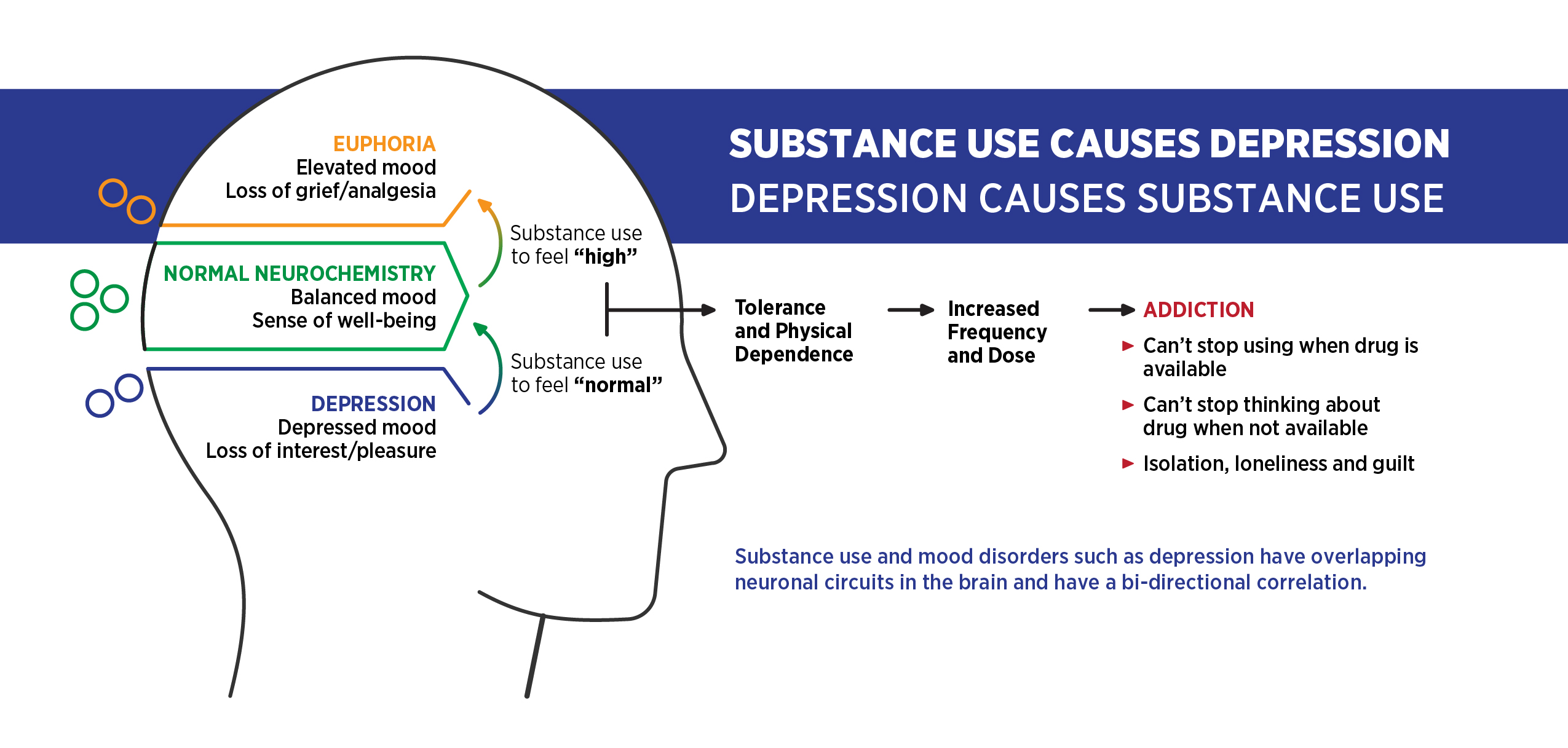Understanding the Neuroscience of Addiction and Substance Use Disorders: Factors Influencing Individual Vulnerability
Addiction and Substance Use Disorders (SUDs) represent a significant alteration in the brain’s reward and regulatory systems, triggered by substance use. These conditions are multifaceted, involving a complex interplay of neurobiological, genetic and environmental factors. Understanding why some individuals develop addiction quickly while others do not requires a closer look at these variables.

How Addiction Changes Brain Chemistry
- Substances such as opioids, alcohol and nicotine mimic or amplify the action of neurotransmitters like dopamine and serotonin, leading to an enhanced reward sensation. This action can disrupt the natural balance and functioning of the brain’s reward system.
- In some individuals, this disruption can lead to a quick onset of addiction, as the brain rapidly adapts to the heightened stimulation, creating a cycle of dependence and tolerance.
Genetic Factors
- Genetic predispositions can play a crucial role in addiction susceptibility. Variations in genes related to neurotransmitter systems can influence how an individual’s brain responds to a substance.
- These genetic differences can explain why some people experience a more intense or rewarding response upon initial substance use, potentially leading to a faster development of addiction.
Environmental and Psychological Influences
- Environmental factors such as exposure to stress, trauma or substance use in the social or family environment can increase the risk of developing SUD.
- Psychological aspects like coping mechanisms, mental health conditions and personality traits also contribute to the likelihood of addiction following initial use.
Long-Term Brain Changes
More than 100,000 people in the U.S. died of an overdose in 2022.
Centers for Disease Control and Prevention
- Chronic substance use can lead to enduring changes in brain structure and function, particularly in regions associated with reward, decision-making and impulse control.
- These changes can persist even after substance use ceases, influencing long-term vulnerability to addiction and relapse.
Behavioral and Cognitive Impact
- Addiction affects behavior and cognition, leading to impaired decision-making, increased risk-taking behaviors and a shift in priorities towards substance use.
- Cognitive functions such as memory, attention and executive functioning are also impacted, compounding the challenges faced by individuals with SUD.
At the National Center for Wellness and Recovery we are investigating this neuroscience to understand why some people have Substance Use Disorder and some people don’t. It’s not just about the drugs themselves.
We know many things factor into this including how their brain works, their genes and what’s happening in their life. Some people’s brains might react more strongly to drugs because of their genetic makeup, while others might be influenced by stressful things in their life or just by being around drugs a lot.
Understanding all these different parts — like the brain, the genes and the life situation — can help doctors and therapists come up with treatment plans that are just right for each person, and it’s key in helping people facing addiction.
Start Your Journey to Recovery
Help for Addiction
Find services, treatment facilities, research-backed educational materials and 24-hour support for substance use and mental health disorders.